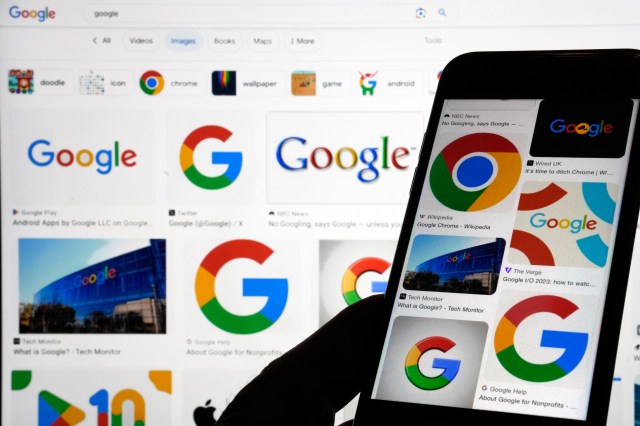The imminent departure from YouTube: AI content and MrBeast’s dominance
- Renowned YouTuber MatPat foresees a mass exodus from YouTube by 2024.
- Creators are experiencing burnout and challenges due to platform changes.
- The landscape of YouTube may shift significantly from its original appeal.
MatPat’s announcement of leaving his esteemed YouTube channel, The Game Theorists, this year was accompanied by a bold prediction: 2024 will witness a widespread departure from the platform.
Anticipating more farewell videos akin to his own, MatPat expressed his belief that a significant wave of departures is on the horizon, suggesting that a pivotal moment is approaching.
While YouTubers retiring is not uncommon, recent exits of prominent creators like Jenna Marbles, Tyler Oakley, and Tanya Burr, for various reasons ranging from criticism to declining viewership, indicate a shifting dynamic.
Notable figures such as Zoe Sugg, Lilly Singh, and Corpse Husband have also reduced their content output significantly, redirecting their focus towards endeavors like comedy, business, or music.
This current trend of departures signals a potential turning point for YouTube, where MrBeast’s extravagant, high-budget stunts overshadow smaller creators struggling to compete for attention.
If this pattern persists, it could herald a future where the relatable, authentic creators that once defined the platform are overshadowed by a blend of premium content accessible only to internet giants like MrBeast, alongside subpar AI-generated material tailored to meet consumer demands with minimal effort.
Transition in 2024: Noteworthy departures
Matthew Patrick, popularly known as MatPat among his millions of followers, reflected on the evolution of YouTube stars and their journey to achieving celebrity status comparable to traditional stars when he announced his exit in January.
In the 2010s, being a “YouTuber” represented a novel career path, fostering strong bonds between creators and their audience as approachable, relatable figures available for interaction.
Patrick highlighted that many creators who established YouTube as a viable career option in its early days are now stepping back due to factors such as age, burnout, and the escalating challenges posed by the platform’s evolving algorithms and policies.
For Patrick, the timing felt right, especially since The Game Theorists had become part of a larger entity following the sale of Theory Media to Lunar X in December 2022. This strategic move allowed him and his wife Stephanie to assume more operational roles behind the scenes, ensuring the continuation of The Game Theorists and its associated channels under new leadership.
Patrick’s decision to scale back his YouTube presence resonates with other creators like Tom Scott, who concluded his renowned “Things You Might Not Know” series on New Year’s day after a decade of sharing insights on various topics. Despite YouTube being his dream job, Scott expressed exhaustion from the platform’s increasing complexity and scale.
Creators like Scott have observed a gradual decline in viewership and ad revenue, signaling challenging times ahead for content producers on the platform.
Challenges for creators on YouTube
Zoe Glatt, a digital ethnographer and feminist media scholar, believes that the recent wave of high-profile YouTubers exiting the platform reflects longstanding challenges exacerbated by recent developments.
The inherent precarity of content creation, characterized by uncertainty and burnout stemming from the platform’s constantly shifting landscape, has been magnified in recent years. YouTube, despite being a leading platform for creator compensation, has grappled with issues like hate speech, inconsistent copyright enforcement, and the delicate balance between free expression and advertiser-friendly content.
While a select group of elite creators have successfully navigated these challenges for over a decade, the departure of established figures underscores the systemic shifts underway.
The rise of short-form content platforms like TikTok has prompted other platforms, including YouTube, to adapt, leading to complaints from creators regarding algorithmic preferences for certain content formats over others.
As YouTube’s priorities evolve, successful creators find their established strategies less effective, compelling them to reconsider their approach or exit the platform altogether.
Evolution of creators and the impact of AI
Creators who rose to fame during YouTube’s earlier years are now at different life stages, with evolving priorities and responsibilities.
For instance, Patrick’s decision to spend more time with his son reflects a common theme among creators transitioning to new phases of life, necessitating a shift in their online presence.
Hannah Witton, a creator since 2013, recently made significant changes following personal milestones, such as becoming a parent. Recognizing the need for change to avoid burnout and financial strain, she opted to pivot her content focus, acknowledging the natural progression and evolution in one’s career.
The allure of scaling up in response to success can lead creators into a “growth trap,” where managerial duties overshadow creative pursuits, eroding the direct connection with their audience.
The relentless pursuit of growth in the online realm has created a paradox where creators are compelled to diversify their income streams across multiple platforms, sometimes at the expense of their original platform presence.
The emergence of AI-generated content poses a new challenge for creators, streamlining production processes and blurring the line between human-generated and automated content. While AI-driven accounts attract substantial viewership, they also highlight the quality disparity between human-created and algorithmically generated content.
As the digital landscape evolves, creators face the dilemma of adapting to changing trends while preserving their authenticity and connection with their audience.
Embracing change and looking ahead
While the landscape of YouTube continues to evolve, with established creators departing and new trends emerging, the essence of the platform remains intact in certain thriving communities like gaming, podcasts, and commentary.
Although the era of early YouTube may be transitioning, creators like Witton view change as an opportunity for growth and renewal, signaling a positive outlook on their future endeavors.
Navigating the complexities of the online sphere requires creators to strike a balance between adaptation and authenticity, ensuring a meaningful connection with their audience amidst shifting trends and technological advancements.
As creators bid farewell to one chapter of their careers, they embark on new journeys with optimism and resilience, embracing change on their own terms and shaping the future of digital content creation.










